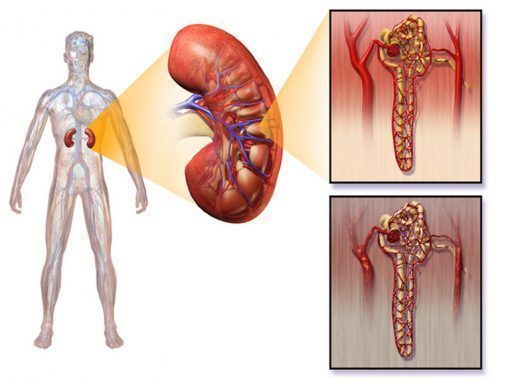
Diabetic nephropathy 3rd ame diabetes update in recent days in Naples Italy
Diabetic nephropathy, 3rd ame diabetes update in Naples
Diabetic nephropathy: complication for more than 1 million Italian diabetics, still too many complications a
kidney burden: 2 out of 10 people with diabetes enter dialysis. This is discussed at the 3rd ame diabetes update,
which was held in Naples.
Statements by Vincenzo Toscano
“Diabetes is a chronic disease, affecting more than 3 million people in Italy alone, characterized by
serious complications,” introduced Vincenzo Toscano, president AME, Association of Medical Endocrinologists.
“About 30 – 40 percent of diabetic patients, more than 1 million in Italy, develop diabetic nephropathy, which
is now the leading cause of chronic kidney failure in the Western world. Diabetic nephropathy
causes progressive and irreversible loss of kidney function and complications resulting from the
reduced kidney function. Chronic renal failure is reported to be sharply increasing worldwide even
due to the average aging of the population and the consequent increase in its causes
main that are diabetes and hypertension.”.
Diabetic nephropathy is one of the main topics of the 3rd AME Diabetes Update 2018 conference, which will be held in
is held in Naples.
The words of Giorgio Borretta
“The kidney plays a key role in regulating sugar metabolism and is one of the
main target organs of diabetes complications,” explains Giorgio Borretta, Working Group
AME Diabetes. “To prevent renal damage in diabetic patients, action must be taken at multiple levels both
by modifying lifestyle with smoking abolition, improved diet and
Introduction of regular physical activity both by optimally controlling blood glucose levels,
blood pressure and circulating fat. All of this also by new hypoglycemic drugs and
hypolipidemic agents to delay onset and slow progression of damage
renal. For the prevention of diabetic nephropathy, early diagnosis is very important, so people with diabetes should undergo periodic urine testing with detection of urinary albumin excretion. The frequency of this examination varies depending on the type of diabetes and the age of onset of the disease.”.
Loreto Gesualdo’s talk
“In the past it was believed that a person with type 2 diabetes,” continues Loreto Gesualdo, President SIN, Italian Society of Nephrology, “would develop diabetic nephropathy, but this is true only in 40% of cases because in the remaining 60% of diabetics the damage is caused by other factors. Hence the importance of proper histological examination through phenotyping of renal damage. As many as 2 out of 10 people with diabetes enter dialysis, and this leads us to say that not enough efforts have been made for the early identification of kidney damage in order to avoid the use of dialysis or kidney transplantation, while a correct diagnosis would allow a more appropriate therapeutic approach”.
“One of the final outcomes of diabetic nephropathy is dialysis,” comments Silvio Settembrini, AME Diabetes Working Group,” and, as seen, people with diabetes account for a major share of dialysis patients. However, it is interesting to point out that the incidence of end-stage renal disease in diabetic patients has been steadily decreasing since 1998 with an annual decrease of 2 – 4 percent, likely as a result of the continuous improvement of therapies. Although the dialysis survival of patients with diabetes is reduced by 20 – 30 percent compared with patients with other diseases, it tends over time to get closer and closer to that of non-diabetic patients”.
Olga Disoteo’s conclusions
“The best replacement therapy for renal function when it is irreversibly impaired is renal transplantation even for people with diabetes, which is not a reason for exclusion,” concludes Olga Disoteo, AME Diabetes Working Group. “Kidney transplantation, compared to dialysis, reduces the risk of death and increases the life expectancy. In patients with diabetes, living donor donation is preferable as it reduces waiting time, is programmable and generally has a better degree of compatibility allowing for longer survival of the transplanted organ. However, kidney transplantation alone does not protect against the possibility of a recurrence of diabetic nephropathy, which is unfortunately also very common due to the adverse effects that immunodepressant drugs can have on diabetes.”.

